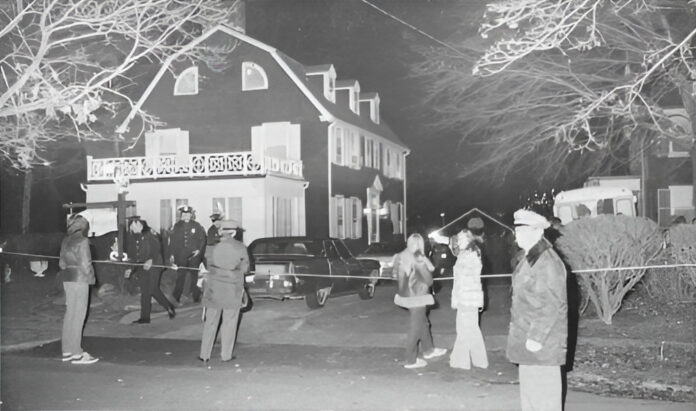On November 13, 1974, a night of unspeakable horror unfolded in the quiet town of Amityville, New York. In the early hours, 23-year-old Ronald DeFeo Jr. methodically murdered his entire family—his parents and four younger siblings—as they slept in their home at 112 Ocean Avenue. Armed with a .35 caliber rifle, DeFeo killed six innocent people in what remains one of the most chilling mass murders in modern history. This unspeakable act of violence would not only scar the suburban community but give rise to a global legend of terror, intertwining tragedy with the supernatural.
A House of Tragedy
The murders were as baffling as they were brutal. DeFeo’s parents, Ronald Sr. and Louise, and his siblings Dawn (18), Allison (13), Marc (12), and John Matthew (9), were all found shot in their beds, seemingly without resistance. The question that haunted investigators was how such a crime could occur without waking anyone in the house—or even alerting neighbors who heard no gunshots. DeFeo initially claimed he discovered the massacre, but his story unraveled under questioning, and he eventually confessed, claiming he was driven to kill by voices in his head.
Sentenced to life in prison for six counts of second-degree murder, DeFeo offered conflicting accounts of the crime over the years, leaving the true motive shrouded in mystery. His chilling confession, coupled with the horrifying details of the murders, marked the house as a place of unfathomable evil.
The Haunting That Followed
Just over a year later, George and Kathy Lutz moved into the house with their three children, eager for a fresh start. They fled 28 days later, leaving everything behind and claiming they had been terrorized by unexplainable phenomena: doors slamming on their own, disembodied voices, green slime oozing from the walls, and a demonic presence they believed had taken hold of their home.
Their account, immortalized in Jay Anson’s 1977 bestseller The Amityville Horror, ignited a media frenzy. The story quickly evolved into a cultural phenomenon, spawning films, documentaries, and endless debate about the line between fact and fiction. Though skeptics argue the Lutzes fabricated their story for fame, the tale has never fully loosened its grip on the public imagination.
A Dark and Lasting Legacy
The Amityville house, an otherwise unremarkable Dutch Colonial, became a symbol of America’s darkest fears: the brutality of family annihilation and the idea that evil might linger in the places where such acts occur. Yet, beneath the layers of myth lies the sobering truth of six lives violently ended by someone they should have been able to trust.
Over the decades, the house has changed hands multiple times, with subsequent owners reporting no paranormal activity. However, its legacy endures, a reminder of the thin veil separating safety from chaos and how human tragedy can take on a life of its own in our collective psyche.
Conclusion
The Amityville murders remain one of the most harrowing crimes in American history, and the chilling legend that followed speaks to our deepest fears about the unknown. Whether viewed as a true haunting or a story born of grief and greed, the events of November 13, 1974, continue to cast a long shadow over the world of true crime and horror.




